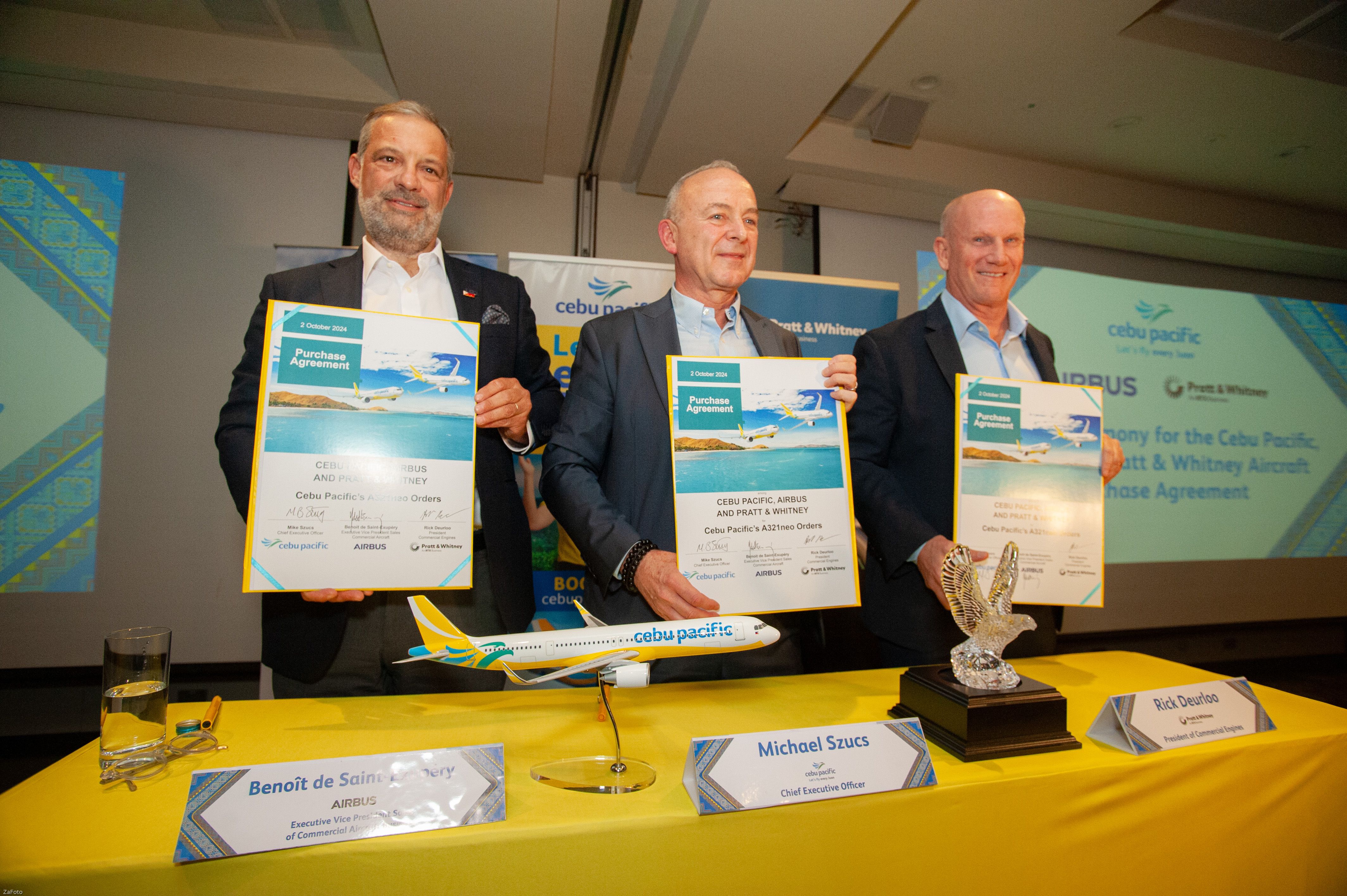Cebu Pacific Air, the country’s leading carrier, is planning to deploy new planes from its massive P1.4 trillion Airbus order to its new hubs—particularly the new airport in Bulacan.
In a press briefing after the signing of the purchase agreement between the airline and Airbus, Cebu Pacific Chief Executive Officer Michael Szucs said that, “when we get towards the end of the decade, we're going to see the new Bulacan airport coming in.”

“When the new Bulacan airport comes in with its significant capacity, it's not as if we're going to take our fleet, which sits here in Manila today at NAIA, and move it over to Bulacan,” he noted.
This is because “we see a lot of development here in Manila. Manila is an enormous metropolis with great potential, and it's now getting infrastructure development,” said Szucs who pointed out that having a private operator for the Ninoy Aquino International Airport “should release some growth longer term.”
“We need to have an entirely new set of aircraft to come in and take up the opportunity that sits at Bulacan. So that's a major growth that we need to put in to coincide with that and built on the fundamentals of a strong economic situation here in the Philippines, and a large and growing population,” he explained.
Szucs added that, “it's not just Manila, it's the whole of the Philippines. There are plenty of markets out there. We're about to open bases in Iloilo and Davao to go on top of the bases we have in Clark, Cebu and Manila.”
“So that's why we made the sizable order, so we got plenty of opportunities to deploy those aircraft when they do arrive,” he noted.
Under their agreement, Airbus will start delivering aircraft from Cebu Pacific’s latest order in 2029 although the carrier still has 22 more planes from prior orders to be delivered before 2029. The fresh order also offers the flexibility of having planes delivered before 2029.
“We've got the ability to top up. Should we need additional (planes) prior to that 2029 first delivery. If, for example, Bulacan comes online in 2028 then we'll need some additional (planes) sooner. If the indications are that Bulacan is going to come online in 2029, then we're perfectly timed,” said Szucs.
While Cebu Pacific’s order is for up to 152 planes from Airbus, its firm order is for a minimum of 70 and up to 102 A321neos. On top of this, it also has purchase rights for 50 more aircraft for a total list price of $24 billion or P1.4 trillion.
“The selection of Airbus A321neo underscores our focus on operational efficiency, sustainability, and innovation, ensuring that we continue to deliver the highest standards of service while significantly reducing our carbon footprint.
“This milestone signals our ongoing dedication to expanding air travel accessibility and affordability, while supporting the Philippine’s broader economic growth and connectivity goals,” said Szucs.
Airbus Executive Vice Preiseent for Commercial Aircraft Sales Benoît de Saint-Exupéry said “The A320 Family has supported Cebu Pacific’s domestic and short-haul international network growth over the last two decades. We’re grateful to the airline for its continued endorsement of our best selling single-aisle product line.”
Cebu Pacific operates 61 A320 Family aircraft on its extensive regional network. In addition it flies nine A330 widebodies on high density routes in the region, as well as to destinations in the Middle East.
Following the latest order, the airline’s backlog with Airbus now stands at 94 A320neo Family aircraft and seven A330neo. The A321neo is the largest member of Airbus’ best-selling A320neo Family, offering unparalleled range and performance.
By incorporating new generation engines and Sharklets, the A321neo brings a 50 percent noise reduction and more than 20 percent fuel savings and carbon dioxide reduction compared to previous generation single-aisle aircraft, while maximising passenger comfort in the widest single-aisle cabin in the sky.